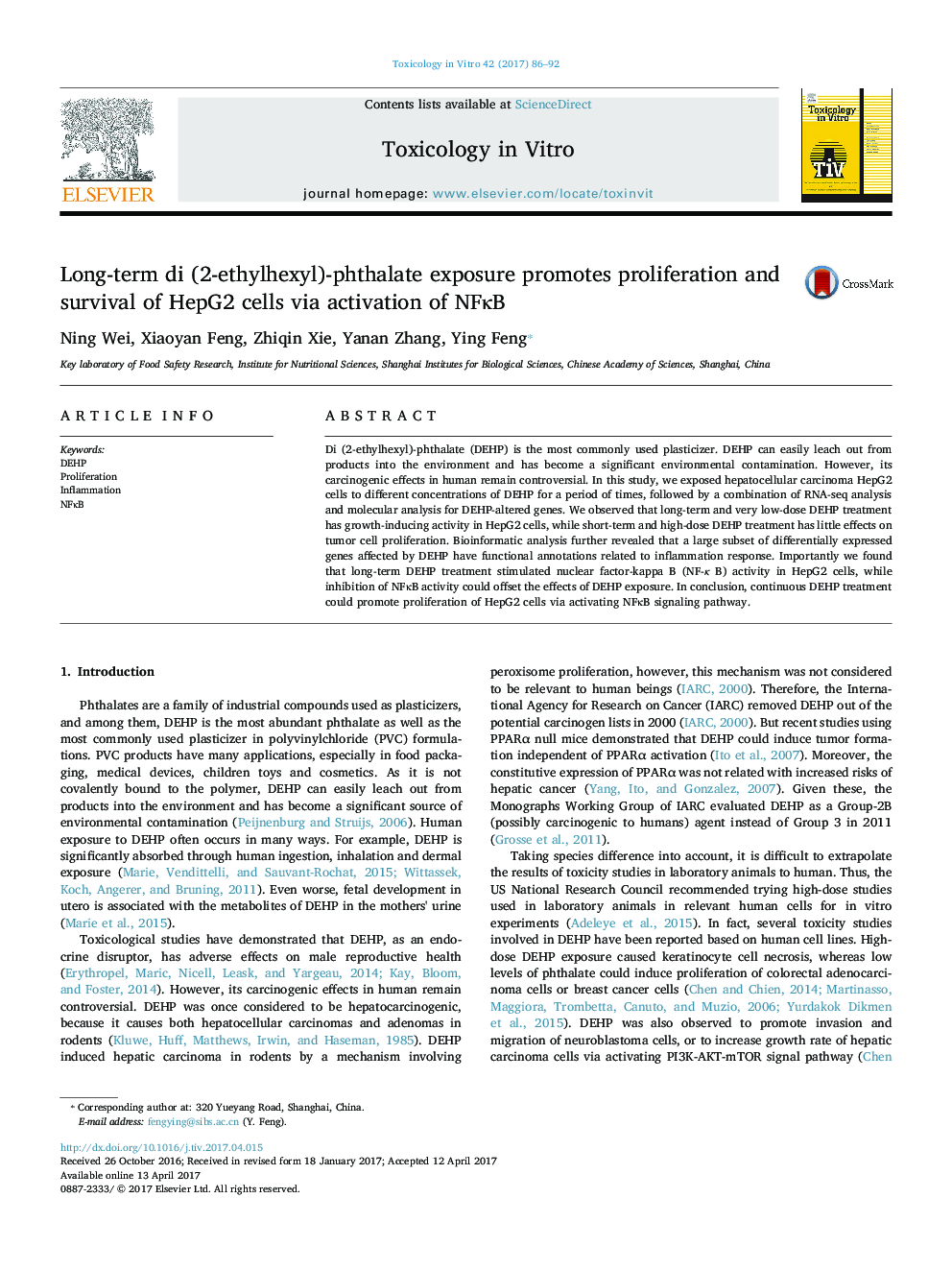| Article ID | Journal | Published Year | Pages | File Type |
|---|---|---|---|---|
| 5562630 | Toxicology in Vitro | 2017 | 7 Pages |
â¢Long-term low concentrations of DEHP promoted tumorigenic potential of HepG2 cells.â¢RNA-seq was performed to identify differentially expressed genes affected by DEHP.â¢Long-term DEHP exposure enhanced the activity of NFκB signaling pathway.â¢Inhibition of NFκB activity could offset the effects of long-term DEHP exposure.
Di (2-ethylhexyl)-phthalate (DEHP) is the most commonly used plasticizer. DEHP can easily leach out from products into the environment and has become a significant environmental contamination. However, its carcinogenic effects in human remain controversial. In this study, we exposed hepatocellular carcinoma HepG2 cells to different concentrations of DEHP for a period of times, followed by a combination of RNA-seq analysis and molecular analysis for DEHP-altered genes. We observed that long-term and very low-dose DEHP treatment has growth-inducing activity in HepG2 cells, while short-term and high-dose DEHP treatment has little effects on tumor cell proliferation. Bioinformatic analysis further revealed that a large subset of differentially expressed genes affected by DEHP have functional annotations related to inflammation response. Importantly we found that long-term DEHP treatment stimulated nuclear factor-kappa B (NF-κ B) activity in HepG2 cells, while inhibition of NFκB activity could offset the effects of DEHP exposure. In conclusion, continuous DEHP treatment could promote proliferation of HepG2 cells via activating NFκB signaling pathway.
